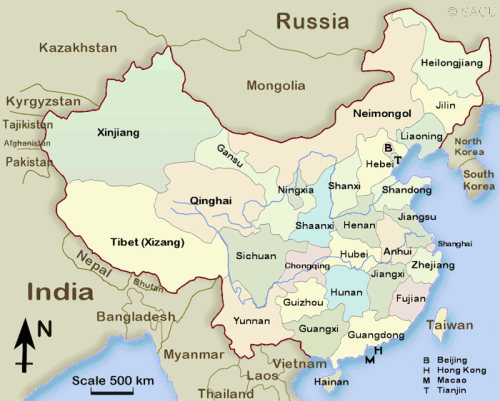Entries in China outbreak (1)
Cases continue to mount in H7N9 outbreak
 The H7N9 outbreak continues to grow. This morning, both Flutrackers and Avian Flu Diary are reporting multiple Chinese stories that two new and previously unreported human H7N9 cases have been found in Hangzhou, Zhejiang Province. Both cases have died.
The H7N9 outbreak continues to grow. This morning, both Flutrackers and Avian Flu Diary are reporting multiple Chinese stories that two new and previously unreported human H7N9 cases have been found in Hangzhou, Zhejiang Province. Both cases have died.
The machine translation from Chinese to English can be problematic where date (well, pretty much anything else) is concerned, so it takes skill to parse correct dates from the rest of the dialogue. Regrettably, that is a skill I lack. But many others do, and these talented people are all located on Flutrackers.com.
There appear to be two separate dates of infection. One apparently is the 7th of March, and the other is the 25th of March. But what is plain is that this brings a fourth province -- and third coastal province -- into the picture. By any yardstick, we have not yet defined the scope of this outbreak. Although it appears human-to-human transmission may or may not yet be possible, and as we covered at length yesterday, H7 can and does infect humans, the cat appears to be out of the bag.
The biggest impediment to getting our arms around the scope of the crisis (yes, I consider this to be a crisis, because we have a novel strain of influenza that no one, outside a random poultry worker or hunter is immune to, and it is killing people): It is not killing poultry. Sentinel chickens (the proverbial canary in a coal mine), used to help detect the presence of avian influenza, may be asymptomatic carriers of the disease. At least that is one oprevailing theory, which would also explain why and how this virus escaped surveillance and, thus, early detection.
You always knew when H5N1 bird flu was close by: You could follow the trail of dead and soon-to-be-dead chickens. H7N9 is not killing chickens. Nor, contrary to what our deepest nightmares and feelings might tell us, is it killing pigs.
My blog of yesterday mentioned a Dr. Yin of the Bill and Melinda Gates Foundation. Apparently Dr. Yin is the Foundation's leader in China. And it was quite satisfying, knowing Bill and Melinda are spending funds in China, including, but not limited to, surveillance. Dr. Yin's statement is worth paraphrasing. He said, basically, if you don't test for H7N9, you won't find it. But if you do test for it, you'll find it. The inference is that there have been numerous unexplained and undiagnosed severe respiratory ailments there this season. Retroactive testing of samples, based on Dr. Yin's inference, will yield a significant increase in the number of H7N9 human cases.
I am hopeful that the CDC here will start looking at the number of "A (subtyping not performed)" samples still lingering around.
